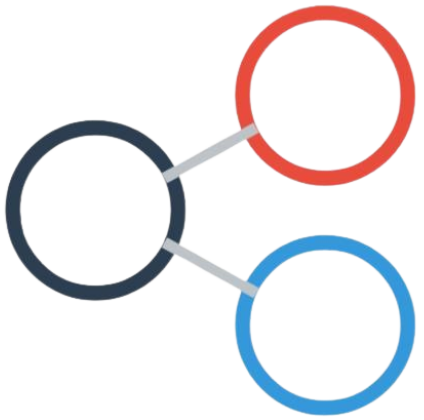Why Certifications Complement, Not Replace, Experience
We’ve all met professionals flashing shiny new certifications, or watched job postings pile up requirements. Yet, have you paused to wonder whether a certificate alone really tells the whole story?
In business and tech, credentials open doors, but real value emerges when knowledge meets hands-on expertise. Striking the right balance can elevate both careers and workplaces, blending skill with wisdom earned over time.
Read on to explore how certifications and experience can join forces to create stronger, more adaptable professionals—helping you make choices that accelerate growth.
The Value of Certifications Explained
Certifications offer structured proof of knowledge, confirming someone has mastered a specific body of information. They signal dedication and readiness to learn new frameworks or technologies, often making a solid first impression during hiring decisions.
Think of certifications like guidebooks for travelers: they map out key sites and must-know tips, but the real adventure begins only when you step into unfamiliar streets and connect theory with practice.
- Documented learning ensures professionals meet recognized standards across industries.
- Certifications can close gaps in self-taught or patchwork experience.
- Employers sometimes use certificates to screen candidates faster.
- Many industries require certification for safety or compliance reasons.
- Continuous certification may be necessary to keep up with rapid changes in some fields.
- They can build confidence for those switching careers or upskilling after a break.
Certifications create shared baselines, letting employers gauge candidates quickly; but genuine skill often emerges only when tackling unpredictable, real-world challenges.
Experience Brings Depth and Context
When Sarah, a recent IT grad with multiple credentials, joined her company’s help desk, she realized books couldn’t prepare her for cryptic user problems—each call was a fresh puzzle to solve.
Similarly, in construction, Luis found project hiccups—weather, late deliveries, teamwork hiccups—were barely addressed by his safety certification. Troubleshooting on-site taught him to adapt, think creatively, and manage risks in dynamic environments.
Marcia’s years running complex ad campaigns made her see digital marketing certificates as valuable for getting started, but irreplaceable lessons came from client feedback, evolving strategies, and learning from missed targets.
Real-world victories and setbacks shape judgment, grit, and confidence—qualities certifications alone can’t instill. Experience weaves context into concepts, showing what works and why when the unexpected strikes.
Comparing Certification and Experience: More Than a Checklist
Let’s dive deeper by outlining where each shines, and why one rarely outshines the other. Listing out their defining traits helps clarify their roles in career development.
- Certifications prove you’ve grasped essential knowledge, often through standardized exams or tests, but they may not reflect how you react under stress.
- Experience helps you read between the lines—knowing which tool to use, and when. It builds soft skills and intuition you don’t find in study guides.
- Certifications are great for leveling the playing field, allowing people from diverse backgrounds to demonstrate talent or dedication in a standardized way.
- Experience uniquely prepares you for unexpected twists, teaching resourcefulness and resilience that can’t be scripted on a syllabus.
- While certifications can open doors to new roles or promotions, experience supports long-term growth, higher pay, and adaptability as projects become more complex.
- Certifications sometimes expire, meaning you must update your knowledge; experience, on the other hand, accumulates and compounds your professional value over time.
- A blend of both signals to employers that you’re both teachable and seasoned, embracing learning while navigating real-world pressures gracefully.
Taken together, these insights underscore why skipping over one for the other can limit potential. Professionals who invest in both build more rewarding, versatile careers.
Situations Where One Stands Out Over the Other
Sometimes, certifications are the difference between qualifying for a job and having your resume overlooked. For regulated fields—like healthcare, finance, and safety roles—they’re even required by law or industry codes.
On the flip side, creative problem solving or team leadership can’t be tested only by exams. A portfolio, references, or stories of challenges overcome tell far more about someone’s readiness than certificates alone.
| Scenario | Certifications Help Most | Experience Help Most |
|---|---|---|
| Compliance Auditing | Required for legal/regulatory reasons | Knowing how to handle tricky client requests |
| Project Management | Proving knowledge of best practices | Managing teams through real crises |
| Sales Negotiations | Understanding formal techniques | Building rapport and closing unique deals |
This table shows there’s rarely a winner-takes-all solution. Each approach shines at different moments, and savvy professionals leverage both for a competitive edge.
Why the Best Results Come from Both
A chef may know every recipe by heart, but only years in the kitchen teach how to improvise when ingredients run short or tastes shift unexpectedly. That’s where learning and application really fuse.
Similarly, a software developer fresh out of a bootcamp might ace certification exams, but the ability to debug under deadline comes only through countless project sprints and collaborations.
Even seasoned professionals benefit from certifications. A nurse with years on the floor might pursue new credentials to stay updated on digital health trends and improve patient care.
The best results emerge when workers stay curious—even after years of experience. Certifications provide fresh frameworks, while lessons from experience fill in the gaps, ensuring professionals evolve as industries change.
Benefits of Blending Certifications and Experience
- Adds credibility to your skill set for presentations, clients, or leadership.
- Shows you’re both willing to learn and able to adapt on the job.
- Improves teamwork by providing common language and best practices.
- Sparks confidence among colleagues and clients alike.
- Equips you to tackle new responsibilities with less ramp-up time.
- Provides proof of dedication for raises, promotions, or new job searches.
- Lets you stand out in crowded job markets, attracting more opportunities.
This blend signals growth mindset, dependability, and strategic learning. Employers notice—and reward—those who never stop developing both knowledge and real-life savvy.
It’s that mix of adaptability and formal learning that delivers consistent, creative results, especially in rapidly changing industries.
Maximizing Your Professional Growth
Picture two employees: one updates certifications every year, while the other relies solely on past victories. Both risk missing out—one stuck in theory, the other in habit.
Now think of someone who learns from every project, then pairs that with up-to-date credentials. This person brings fresh perspective and reliable experience, offering creative solutions grounded in best practices.
If certifications feel daunting, start small—pick one that fills a real gap. If experience feels stagnant, seek feedback, mentorship, or stretch projects to keep learning alive.
Conclusion: Blending Credentials and Wisdom for Career Success
The real magic in professional development lies in harmonizing formal learning with hands-on growth. Certifications offer foundations and credibility, while experience refines and applies that knowledge in meaningful ways.
Employers and clients alike seek professionals who not only know the rules but can improvise when circumstances change. Showing both paper qualifications and a record of results sets you apart in any field.
Combining the two isn’t just about “having it all.” It’s about staying curious, resilient, and ready for both today’s expectations and tomorrow’s unknowns. Growth, after all, is a lifelong pursuit.
So the next time you spot a training course or face a new challenge, see it as fuel for your journey. Blending learning with experience can transform setbacks into stepping stones and create a truly memorable career path.
The choice isn’t certification or experience—it’s both, working together for your long-term fulfillment and success.

